“Cane Fire,” the award-winning documentary film from Anthony Banua-Simon opens today in New York City. The film in part, wants to separate reality from the Hollywood portrayal of Kauai. It tells a different version of the island’s history, rather than the escapist fantasies depicted earlier. We saw this change in the movie, “The Descendants” and also in the documentary, “Taylor Camp.”
To our knowledge, “Cane Fire” has never been screened on Kauai, but was previously shown in Hawaii at the Honolulu Film Festival. The movie includes troves of previously unseen footage that depicts the agriculture and tourism industries and their impact on Kauai.
Over the past two centuries, the Hawaiian Island of Kauai has become synonymous for both its inescapable, pristine natural beauty as well as being a globally renowed destination paradise. The film points out, however, that the Kauai of today has cleverly concealed the reality of its colonialization, the extreme worker exploitation, and environmental destruction that’s been at the very core of Kauai’s metamorphosis.
The film depicts Hollywood’s portrayal of Kauai as buttressing inappropriate stereotypes of Asians and Pacific Islanders. It also addresses the big plantation families which controlled all of the island plantations and their exploitation of workers; the cultural forces at play, as well as the evolution of both Hawaii’s tourism and agriculture industries.
Tourism and Hollywood, Anthony Banua-Simon says, took Kauai and Hawaii and turned it into a dream destination for everyone except those who lived here. He shows that through a series of interviews with family and union heads as he depicts how Hawaii busted unionization, and progressively turned the island into a destination accessible only by the wealthy.
“Cane Fire” also spotlights important native land that we know as the remaining shambles of the old Coco Palms Resort, where Elvis Presley’ Blue Hawaii was filmed.
The film by director Anthony Banua-Simon was acquired by Cinema Guild and plans are for it to be released throughout the U.S., starting with its theatrical premiere today, at the Brooklyn Academy of Music.
“We’re so excited to be helping Cane Fire find a wider audience,” added Cinema Guild President Peter Kelly. “Anthony Banua-Simon is an incredibly talented filmmaker who brings a personal angle to an aspect of the visualization of Hawai’i that is not dealt with nearly enough.”
The film examines the past and present of the Hawaiian island of Kauai and brings in four generations of family history, together with the stories of the numerous Hollywood productions, including one that largely began with Lois Weber’s 1934 film, “White Heat.” In that film, Hawaii was portrayed as that of Haole’s (foreigners), whereas Hawaii’s working class residents together with Native Hawaiians were cast merely as extras in their own story.
In that film, “White Heat,” the star burns an entire sugar cane plantation. That raised fears that it could cause a revolt within the sugar plantations. In that film, Anthony Banua-Simon’s great-grandfather, appeared as an extra.
“Cane Fire” is a kaleidoscopic portrait of Kauai that was the winner of the 2021 Indie Memphis Best Documentary Award, and is one that we can’t wait to see in full.
Get Breaking Hawaii Travel News
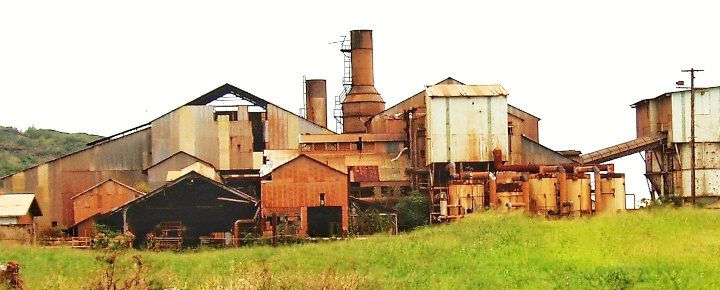
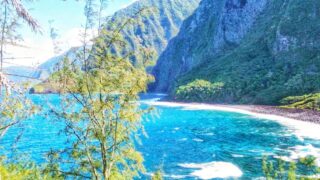
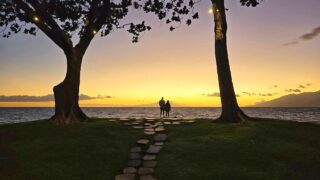
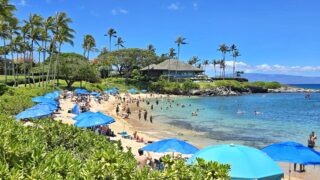
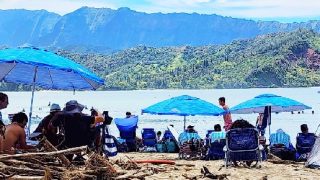
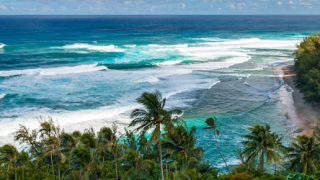
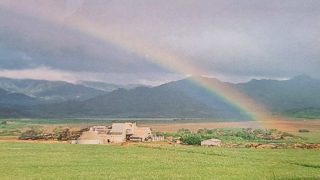
Cane fire behind my house Lived in Puhi yes don’t wash clothes on that day or after they burn the cane……. plenty sooth black will damage your clothes!!!!!!!! Always Had a Garden planted in the back yard…… headcabbage, Manoa lettuce ,eggplant, corn,asparagus,green beans,soybeans, plenty veggies chinese cabbage, mustard cabbage………….we grew all our veggies……….
Where can we see the film? We don’t have a movie theatre in Lihue anymore, can we stream it?
As with most stories of Hawaii, CANE FIRE would seem to be influenced by a limited point of view, fixated on exploitation.
We are all, of course, “exploited” in many ways–by government, by big business, by demands necessary for certain goals we may set for ourselves. The “exploitaiton” is sometimes means to an end, a way for the “exploited” to move ahead, get a foothold that can lift one to the next level. Hawaii looked damn good to many impoverished people from other countries that came to work. And for a good many years, Hawaii’s agricultural workers were among the highest paid in the world. There’s little question that the “exploitation” many workers went through eventually benefited their children and their chlldren’s children.
Are you kidding me? After exploiting Chinese (slave) labor to build the first transcontinental railroad from the West Coast, the. Chinese labor returned to California only to have the Hawaiian Plantation owners say “Have we got a deal for you.” Except in Hawaii the Chinese (slave) labor were put in man camps where they couldn’t escape because they were trapped on an island. Not so sure the Chinese laborers who hand cut sluiceways down and through mountains and lava rock would agree with your romanticized view.
When and where can we see the movie? Netflix, hulu??
Will this film be shown in California?
Hawaii tourism was only for the wealthy until the 1960s because of the cost of travel by ocean liner or airplane. The “jumbo jet” made flights less expensive, which, coupled with statehood, launched the era of mass tourism.
Our family lived in a sugar plantation home across the Koloa Sugar mill.It was a short distance for my dad to walk to work.Our family have fond memories living there
Finally the truth comes out!!
This has been a fascinating subject for me in the past few years visiting the Islands. Where large corporate farms and agri business might not be a viable economic possibility. Allowing Hawaiians to co-op the land in small 15-30 acre parcels. Might allow them to create sustainable resources and most imortant, income. Land owners like Stev Case I think is doing this on his land by keeping it from developers. My understanding Hawaiian beef is in high demand. Whether it’s locally grown fruit, vegetables, chickens, pork, tarot, Kauaii has the natural resources. The question is do the people have the drive to make it happen.
Yes it has been shown on Kauai. I watched it and met the filmmaker.
I used to live at that village camp by that sugar mill in Koloa. That was my culture.
Iris just appear. I live on the island of Oahu. I’ve lived here on and off since 1977. I happened to be African-American. I took the time to read the history of Hawaii because I love it so much and I just cried. Colonialism bigotry racism all the things that are connected with it capitalism have just made it out early impossible for locals to live here long term. It is really designed for the Uber Rich it is not designed for the $40,000 yearly wage owner. This is just a travesty it is so wicked and just sad. I can’t wait to see the movie I will support it.
It will be interesting to watch. But, is it really telling us anything about Hawaii that we did not already know? Guess I’ll find out.
One can read the books as out of date and out of touch as Michener and learn about what the ‘christians’, in particular, and white people, in general, did to Hawaii and the Hawaiians.
There are many potential allies for natives that do not know hardly any of Hawaii’s mistreatment and backstory. White privilege simply doesn’t allow it. However, documentaries like this can get the truth to the masses and help them better understand the degradation of natives all over the world. It’s tragic that rich white men that think they know better have been imposing their small-mindedness for centuries on others for power and fortune. The Africans suffered, Hawaiians, Alaskans, Scots, Jews, and many more societies suffered and it’s time to end it. You are correct, PegM, about being able to read and educate oneself to the atrocities, but people don’t.
Speaking as someone who was involved in the Hawaiian Sovereignty movement (before it devolved into petty bickering about who would be the next Monarch), I would like to see someone touch on the several, UNfortunate times that the Hawaiian royalty screwed themselves and their people, basically rolling out the red carpet for a ha’ole takeover of the islands. This started in 1819 with one of Kamehameha I’s wives pushing Kamehameha II into abolishing the old Hawaiian native religion (the Kapu system).That void proved to be fertile ground for the Kristyun missionaries who showed up the following year.
You do know that James Michener’s book Hawaii,Deb is fiction, good read, but fiction
Michener’s book HAWAII, is fiction, you can google it.
Good day everyone! Aloha! I’ve been to Kauai and I’ve seen every corner of it and it’s indeed a beautiful place on this Earth. My personal experiences with the native Hawaiians have been so pleasant; they’re so happy, loving, and welcoming despite the adversities of the economy.
Kauai has gorgeous resorts and it’s evident that the locals have no part on the investment of those developments, but they’re the workforce that moves them. Colonialism and exploitation at its best. It’s still happening since the USA forced Queen Lili’uokalani out the throne with their deceitful tactics and colonialist politics.
I can’t wait to watch this documentary. The truth has to be told. Mahalo 🙏🏽
Love from NYC ❤️🗽🏝
liberals love re-writing history. Really? Natives lived in a lush paradise with food, education, technology, harmony, etc?
Plenty of bad in human condition everywhere.
The white People did more good than bad…and spread the standard of living we enjoy today.
Last I recall Hawaii had plenty of people killing each other along with terrible natural catastrophes because of their primitive ways!
Hey look a written language…how about that?
How appropriate that your name is “Guy”. White guy, no doubt.
Thank you for proving why people need movies that were not made in Disneyland.
Guy, what do you mean Liberals? Lots of rewriting of history, but mostly by rich, white (old) men!
Love Hawai’i! Kauai is a definite island beauty.
Our 1st visit to Kauai was in 2021. During our stay we learned so much about the island through our guides on the different activities we did. We were blessed to have very knowledgeable guides that shared both the good and bad history of the island. Can’t wait to see this film.
What guides did you use while you were on island?
I am a simple malahini who has been here only 34 years but I have learned to love the Aina and the local born inhabitants of these beautiful islands. It just so happens that my very first employment here was working to help close the Haina sugar mill. I feel that the discontinuing of large scale agriculture and the selling off of the lands has been a sad and unfortunate circumstance. Things grow superbly well here but once the land is sold off, as is now happening, it is gone forever and can never again help to support the children of the islands.
And so it goes. Now being resold at a stolen parcel near you; perhaps by you.
I hope this isn’t another bashing of Caucasian’s and the so called “white privilege” fallacy. I will reserve my judgement until I see the documentary. However, Hawaii along with the mainland, Europe and most, if not all, other country’s have experienced times in their history that growth may have been painful and unfair. It’s obvious that Hawaii benefited from both the sugarcane industry and tourism. Yet, tourists and business developers alike continue to be villainized. I visit hawaii every year sometimes more than once. I enjoy the islands very much. And, the local people that work in the various establishments that serve tourism enjoy the jobs and revenue that tourism brings.
Mahalo, TJ
I grew up in a plantation house behind Kekaha Sugar Mill. This story is as personal to me and my family as it can be. Thank you for telling it.
I am as white as one can get. White privilege isn’t a fallacy TJ. I encourage you to look beyond the sound bites and misnomers to truly understand where it comes from. I didn’t want to think I enjoyed white priv, because I know I am not racist. Then I learned that white privilege comes from simply being born white – one is treated differently by others that don’t understand it and it has nothing to do with ones own thoughts on equality. A person can reject it from their mind, but they can’t eject it from how they have lived. It just is.
“… enjoy the jobs….” LOL TJ, you are so out-of-touch with the reality of living in Hawaii you are living proof of the existence of white privilege. Residents here , who do not have degrees in lucrative fields have to work in tourist-related jobs to survive – and oftentimes, they have to work Two of those jobs to afford living in “Paradise”.
The Gods and the Universe don’t sleep . Money kills all cultural lands and traditions. Lots to say but keeping it simple , Good Job Braddah!!
Wow, going to have to wait to see it but when I can I will. Mahalo for the heads up.
WOW!! It’s on my list of must see! Mahalo
Looks excellent. I hope to see this!
For readers who want a more historical feel of Hawaii – historical fiction – The Last Aloha by Gaellen Quinn, Honolulu by Alan Brennert, Moloka’i (#1) and Daughter of Moloka’i #2 – about the leper colony experiences.
I hope it has some balance, but it’s interesting that those who arrived to convert the natives in the end were the ones who ended up converted and exploited the land and its people.
As for “Cane Fire/White Heat” I too would like to see it, more as a historical note) as it was the first Hollywood film shot on Kauai and was directed by a woman. By all accounts it’s not very good (quite racist). There probably is a copy hiding somewhere but to date it hasn’t shown up.
Thank you for mentioning “The Last Aloha”. Ive read all of Mr. Brennert’s novels and old Hawai’i is something I find of great interest.
Charles Y
I’d really like to see it! It’s no different here on the mainland where the Haoles have done the same to the indigenous peoples of Turtle Island. It’s a shame. But documentaries like this bring these injustices to the forefront where the younger generations can learn about the wrongs perpetrated by their elders. I hope this knowledge can be used to positively impact the way Hawaiian People are viewed by the world. Aloha
I’ve always wanted to see White Heat but I’ve never seen it come up on the TCM channel lineup.
The last wave of exploitation has arrived. The tech oligarchs are purchasing Kauai lock stock and barrel. The remaining population will slave for them and survive by eating the crumbs that fall off the table.